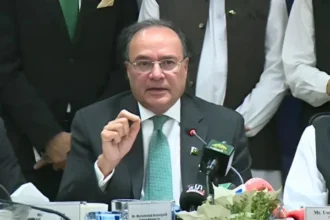ISLAMABAD: As the Iran-Isr@el conflict escalates with deadly airstrikes and missile exchanges, Pakistan has voiced strong condemnation of Isr@el’s actions while bracing for potential fallout.
Calling the attacks a “blatant provocation,” Pakistan’s Foreign Office urged the international community to intervene. Yet, fearing spillover effects, Islamabad has shut down five border crossings with Iran, particularly in the volatile Balochistan province.
More than 500 Pakistani pilgrims and students have returned via the Taftan border. Officials cite rising fears of militant movement across the porous border and a possible refugee influx.
Analysts say Pakistan is worried about both Baloch separatist groups operating on both sides of the border and the possibility of Isr@el establishing aerial dominance in Iranian airspace—threatening regional balance near Pakistan’s western frontier.
Despite its historic alignment with the U.S., Pakistan appears cautious this time, partly due to domestic sectarian sensitivities. With a sizeable Shia population, experts warn that any tilt against Iran could provoke unrest at home.














